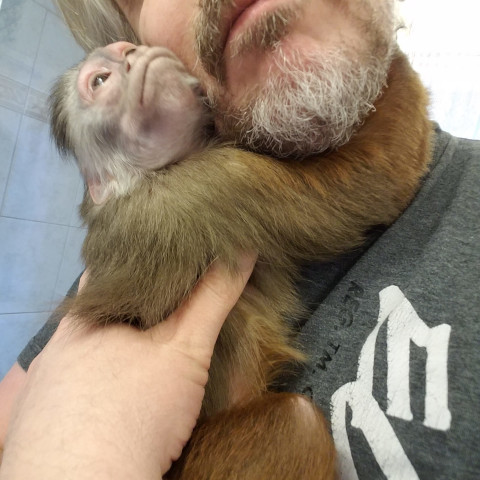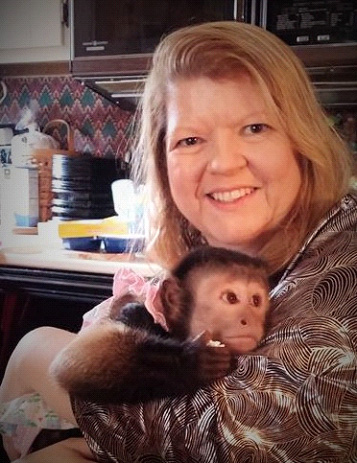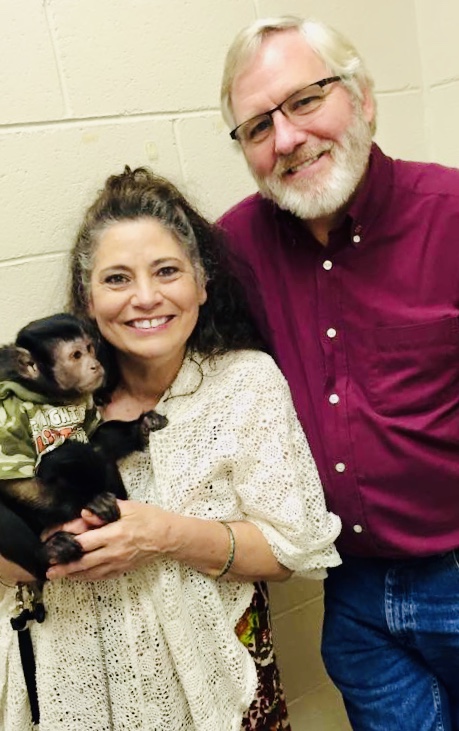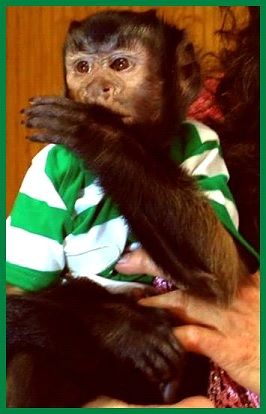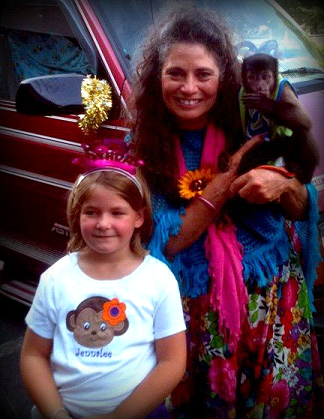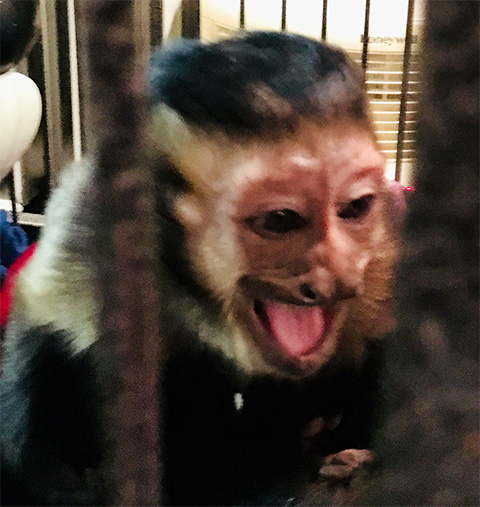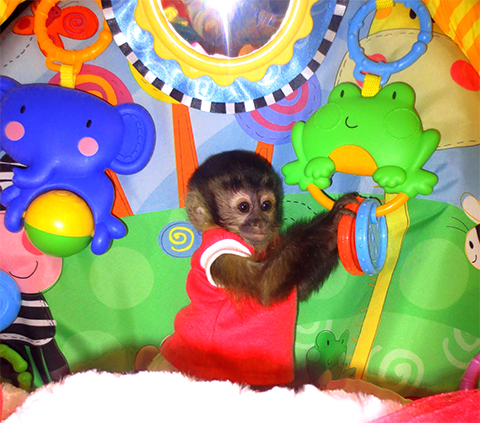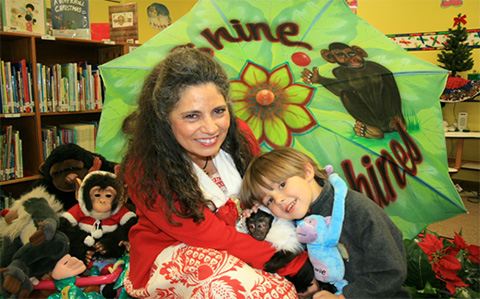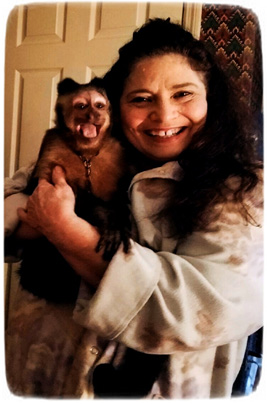A Very Special Re-Homing Story – by Mary Lynn Campbell
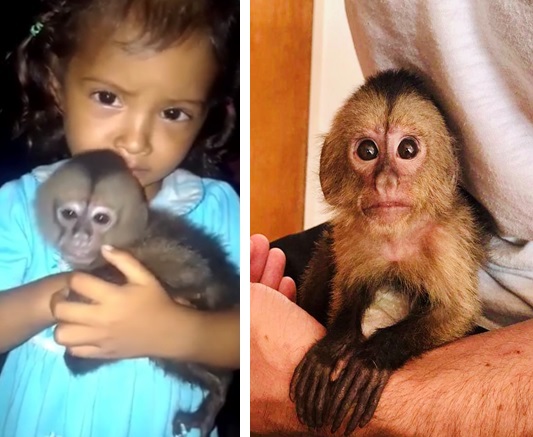
Welcome back to the Primate Care Site. We hope that you and your families have been able to remain healthy during this world pandemic. Although I have not been able to resume taking the monkeys of SunShine MonkeyShines out to local schools and birthday parties, I have been very busy networking with many of you who have needed help with your monkeys. This site has provided me with an ability to network with many monkey families all around the world. I thought it would be a wonderful time to share the story of one of these families unique experience with giving a home to two Capuchin monkeys.
Soon after writing my last post, I was contacted by someone from South America whose family in earlier years had been active in caring many of the smaller primate species. As we all know, in South America their are many different types of primates living on that continent. I hope you will enjoy hearing this story from a part of the world where New World Monkeys are actually born into wild troops.
